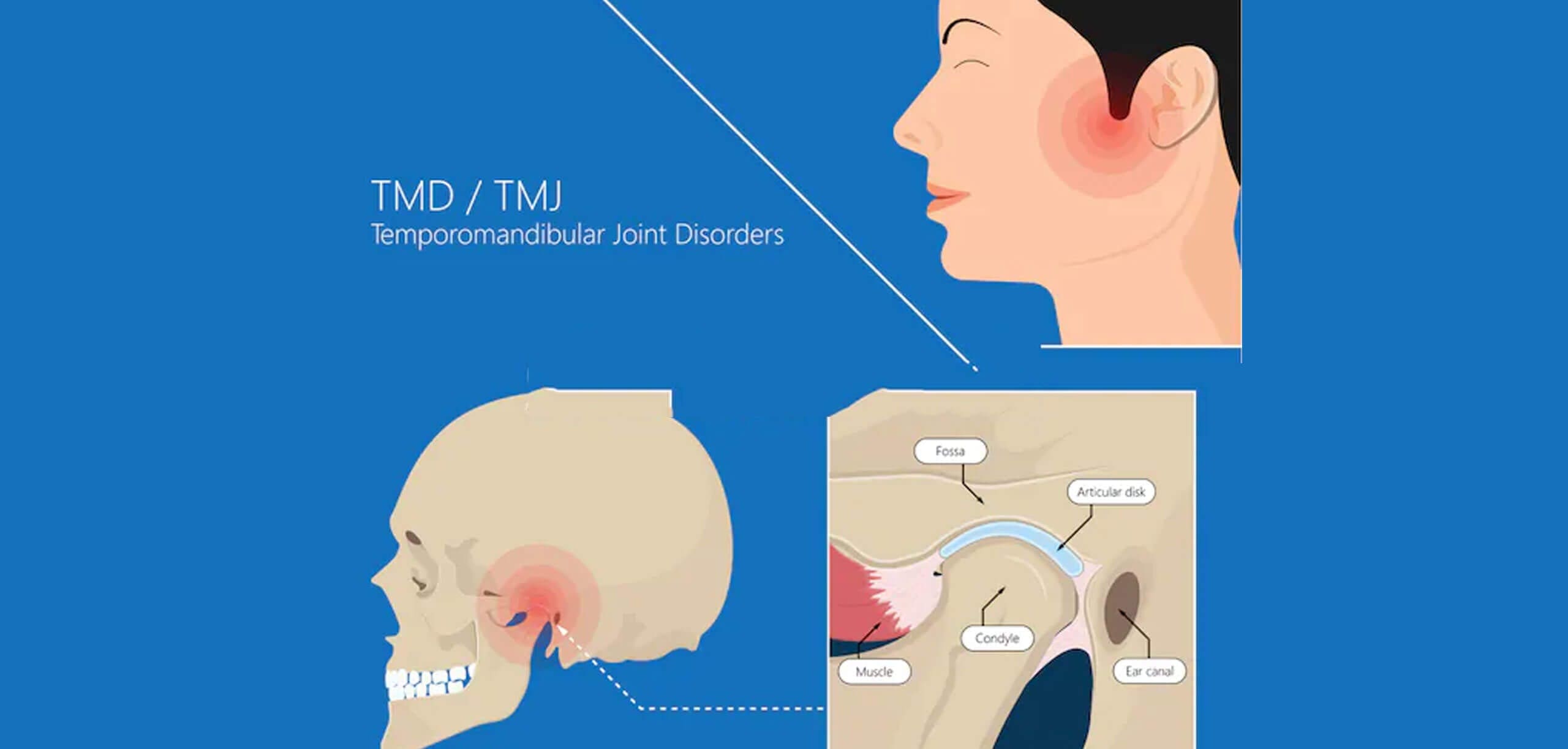
TMJ stands for Temporomandibular Joint Disorder. It is a common condition in which there is limited range of motion within the jaw. The jaw is a hinge joint that is connected to the skull through 68 muscle pairs located in front of the ears. These muscle pairs are important to speaking, chewing, swallowing, and yawning, and are among the most commonly used in our body.
There is a disk in the jaw known as the articular disk, which separates the skull from the condyle head of the mandible. Misalignment of this disk can cause TMJ. This misalignment may be caused by stress, which causes clenching and grinding of the teeth, sometimes during sleep. TMJ can also be caused by missing or crowded teeth, or trauma including whiplash. Up to 35% of Americans suffer some form of TMJ.
Symptoms of TMJ include pain and stiffness upon opening or closing the mouth, or a cracking, grinding or popping sound when using the joint. The condition creates significant wear on the joint and can have serious consequences for normal daily use of your jaw.
As chiropractors are experts in joint misalignment, they are well suited to treat TMJ. Your chiropractor will look at all aspects of your lifestyle and will ask you for a complete medical history. X-rays are useful to locate the condyle head of the mandible and check the positioning of the articular disk. Palpating the area also helps to establish the severity of the condition.
Treatment focuses on relieving tension in the many muscles of the jaw and possibly the neck and upper back. It will exclude surgery and medication, and may include adjustments and manipulation of trigger points by hand to achieve relaxation. If stress is one of the causes of your TMJ, certain exercises and relaxation techniques can be very useful to relieving the symptoms. These techniques might include meditation, massage, counseling and biofeedback. Heat and ice can also be soothing. You may also be asked to do some exercises at home.
The result of these treatments is a usually greater range of motion in the jaw joint, which not only relieves jaw pain but the locking and popping, headaches, and neck pain. However, chiropractic care goes beyond pain relief and is often able to prevent TMJ from returning. The combination of effective treatment options and the avoidance of medications or surgery make chiropractic care an excellent choice for the treatment of Temporomandibular Joint Disorder near Gaithersburg MD.

